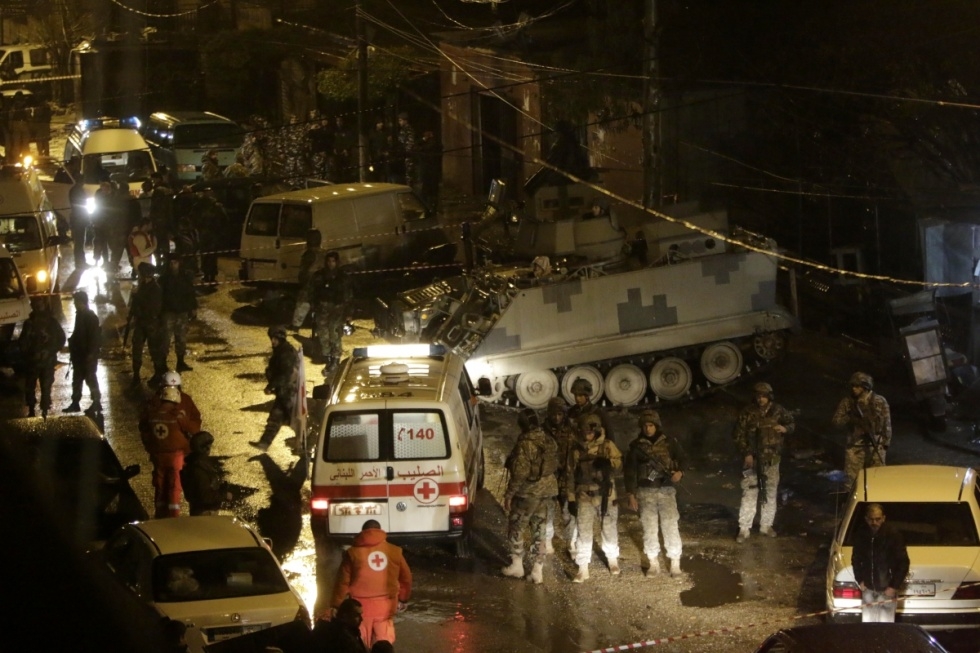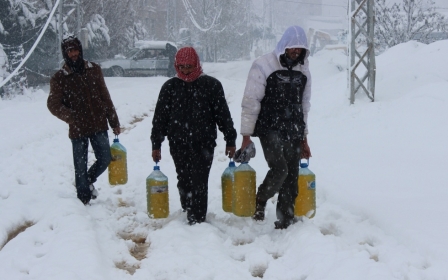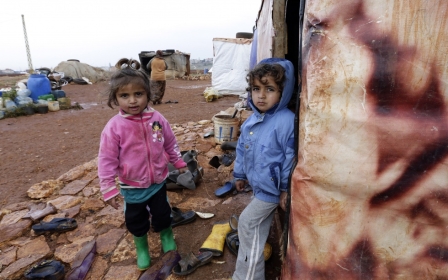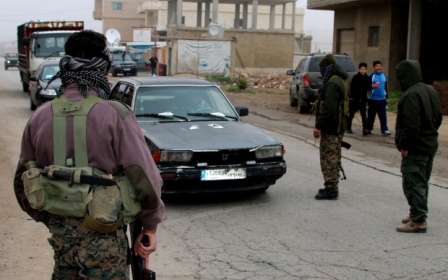Suicide bombers kill nine in Lebanon's Tripoli

Two suicide bombers killed nine people and wounded 37 others in an attack on a cafe in a flashpoint Alawite neighbourhood of the northern Lebanese city of Tripoli Saturday, officials said.
Al-Qaeda's Syria branch claimed responsibility for the attack in the Jabal Mohsen neighbourhood.
"Nine people were killed and 37 others wounded," the health ministry said in a statement.
A security source told AFP: "The first suicide bomber entered into the Ashqar cafe at around 7:30 pm (1730 GMT) and blew himself up."
Panicked survivors tried to flee the scene of the attack, said the source, who spoke on condition of anonymity.
"Then, a second suicide attacker arrived, and blew himself up too," he said, updating his initial account of a single suicide bomber.
Lebanese security forces believe the bombers lived in Mankubeen, a majority Sunni neighbourhood just 500 metres away from Jabal Mohsen.
The security source said the army had cordoned off the bombers' homes.
A man who was lightly wounded said he was near the scene of the blast when the attackers struck.
"I was at the cafe with other people, when we suddenly heard a first blast," Zuheir al-Sheikh said.
"Then we heard a huge blast, though I have no idea what caused it," he added.
Al-Qaeda's branch in Syria, the Al-Nusra Front, claimed responsibility for the blasts via Twitter.
"#Al-Nusra Front: a cafe belonging to the (Alawite Arab) Democratic Party in Jabal Mohsen was targeted with a double martyrdom attack, to avenge the Sunnis in Syria and Lebanon," read the tweet.
The Arab Democratic Party is the main group representing the Alawite minority in Lebanon.
Syria conflict fuelling sectarian hatred
Lebanese politicians and movements were quick to condemn the bombing, branding it a "terrorist" act and calling for unity.
"This crime will not terrorise the Lebanese or the residents of Tripoli, and it will not weaken the government's resolve to confront terrorism and terrorists," Prime Minister Tammam Salam said in a statement.
The powerful pro-Syrian Shiite Hezbollah movement blamed "terrorists" for carrying out the attack.
Former prime minister Saad Hariri, Lebanon's main Sunni official, also condemned the attack.
"This terrorist act is part of a campaign to sow chaos and division, and to destabilise [Tripoli] after the Lebanese army and security forces managed to stop the cycles of violence," Hariri said in a statement.
Lebanon's second city Tripoli has seen frequent violence pitting gunmen in the Alawite district of Jabal Mohsen against neighbouring Sunni Bab al-Tebbaneh.
Fighting between the two districts in recent years has killed scores of people, many of them civilians caught in the crossfire.
Though the tensions have their roots in the 1975-1990 Lebanese civil war, sectarian hatred has spiralled ever since the outbreak of a revolt in neighbouring Syria.
Residents of Jabal Mohsen support Syria's President Bashar al-Assad, who belongs to an Alawite clan, an offshoot of Shiite Islam, that has ruled the war-torn country for more than 40 years.
People in Bab al-Tebbaneh support the rebels, who like the Syrian population are mostly Sunni.
Since October, the army has deployed heavily in Tripoli, detaining hundreds of people in an attempt to stem the violence.
On 23 August 2013, bomb attacks struck two mosques in Tripoli, killing and wounding dozens of people.
Some of those suspected of involvement in the attacks were from Jabal Mohsen.
New MEE newsletter: Jerusalem Dispatch
Sign up to get the latest insights and analysis on Israel-Palestine, alongside Turkey Unpacked and other MEE newsletters
Middle East Eye delivers independent and unrivalled coverage and analysis of the Middle East, North Africa and beyond. To learn more about republishing this content and the associated fees, please fill out this form. More about MEE can be found here.




